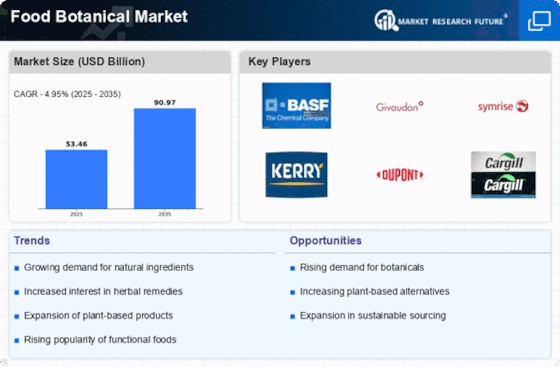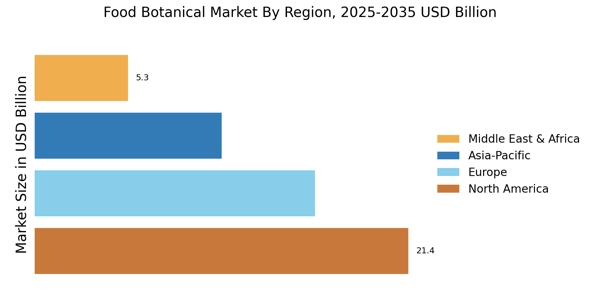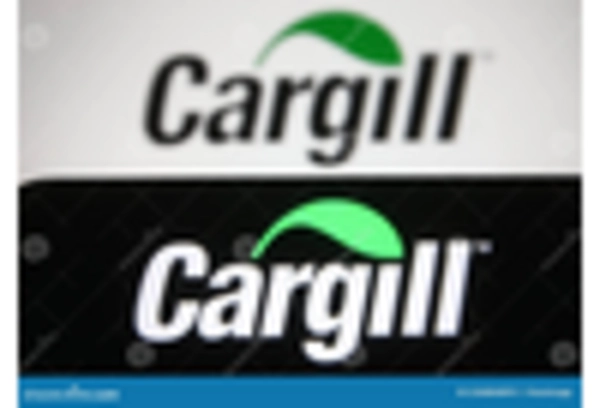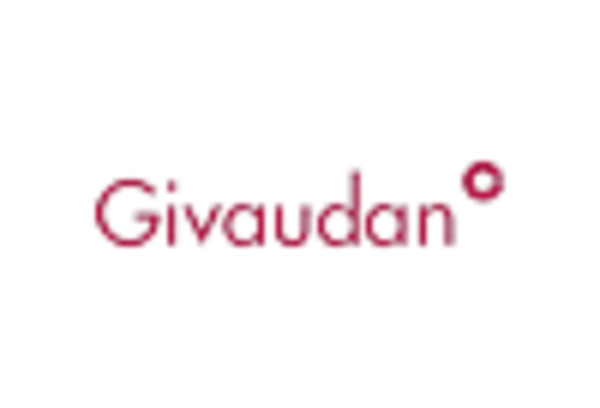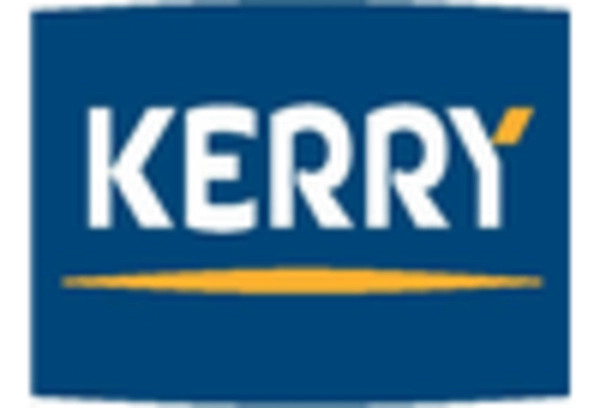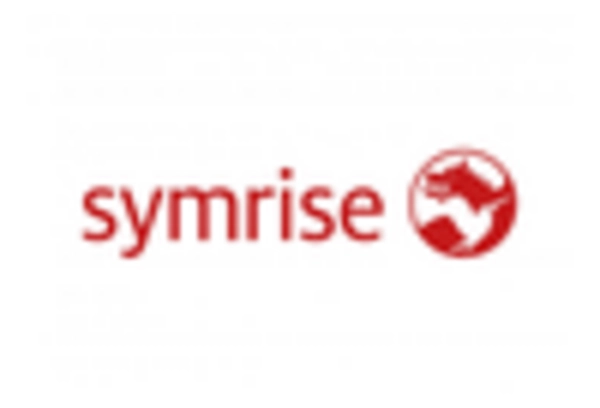Expansion of Functional Foods
The Food Botanical Market is witnessing a significant expansion in the functional foods segment. Functional foods, which offer health benefits beyond basic nutrition, are increasingly popular among health-conscious consumers. The market for functional foods is expected to reach a valuation of over 300 billion dollars by 2026, indicating a robust growth trajectory. This expansion is fueled by the rising prevalence of lifestyle-related diseases and a growing interest in preventive health measures. Botanicals play a crucial role in this sector, as they are often incorporated into products designed to enhance immunity, improve digestion, and promote overall well-being. Consequently, the Food Botanical Market is poised to benefit from this trend as manufacturers innovate to meet consumer demands.
Rising Interest in Herbal Remedies
The Food Botanical Market is experiencing a resurgence in interest in herbal remedies, driven by a growing consumer inclination towards holistic health approaches. This trend is reflected in the increasing popularity of herbal supplements and teas, which are perceived as natural alternatives to conventional medicine. Market Research Future indicates that the herbal supplement sector is projected to grow significantly, with a compound annual growth rate of around 7% over the next few years. This rising interest in herbal remedies is not only a reflection of changing consumer attitudes but also highlights the potential for botanicals to play a central role in health and wellness. As consumers seek natural solutions for various health concerns, the Food Botanical Market is likely to expand to meet this demand.
Sustainability and Ethical Sourcing
Sustainability has become a pivotal concern within the Food Botanical Market. Consumers are increasingly inclined to support brands that prioritize ethical sourcing and environmentally friendly practices. This shift is reflected in the growing number of certifications for sustainable practices, which appeal to eco-conscious consumers. As a result, companies that adopt sustainable practices are likely to gain a competitive edge in the market. Furthermore, the demand for sustainably sourced botanicals is expected to rise, as consumers seek products that align with their values. This trend not only influences purchasing decisions but also shapes the overall landscape of the Food Botanical Market, encouraging innovation in sustainable practices.
Technological Advancements in Processing
Technological advancements in processing methods are transforming the Food Botanical Market. Innovations such as cold extraction and supercritical fluid extraction are enhancing the efficiency and quality of botanical ingredient production. These technologies allow for the preservation of bioactive compounds, which are essential for the efficacy of botanical products. As a result, manufacturers can offer higher-quality ingredients that meet the increasing consumer demand for potency and effectiveness. The integration of technology in processing is likely to streamline production processes, reduce costs, and improve product consistency. Consequently, the Food Botanical Market stands to benefit from these advancements, as they enable companies to deliver superior products to consumers.
Growing Consumer Demand for Natural Products
The Food Botanical Market experiences a notable surge in consumer demand for natural and organic products. This trend is driven by an increasing awareness of health and wellness, as consumers seek alternatives to synthetic ingredients. According to recent data, the market for natural food ingredients is projected to grow at a compound annual growth rate of approximately 8.5% over the next five years. This shift towards natural products is not merely a passing trend; it reflects a fundamental change in consumer preferences. As more individuals prioritize clean labels and transparency in food sourcing, the Food Botanical Market is likely to expand, catering to this evolving consumer base.


